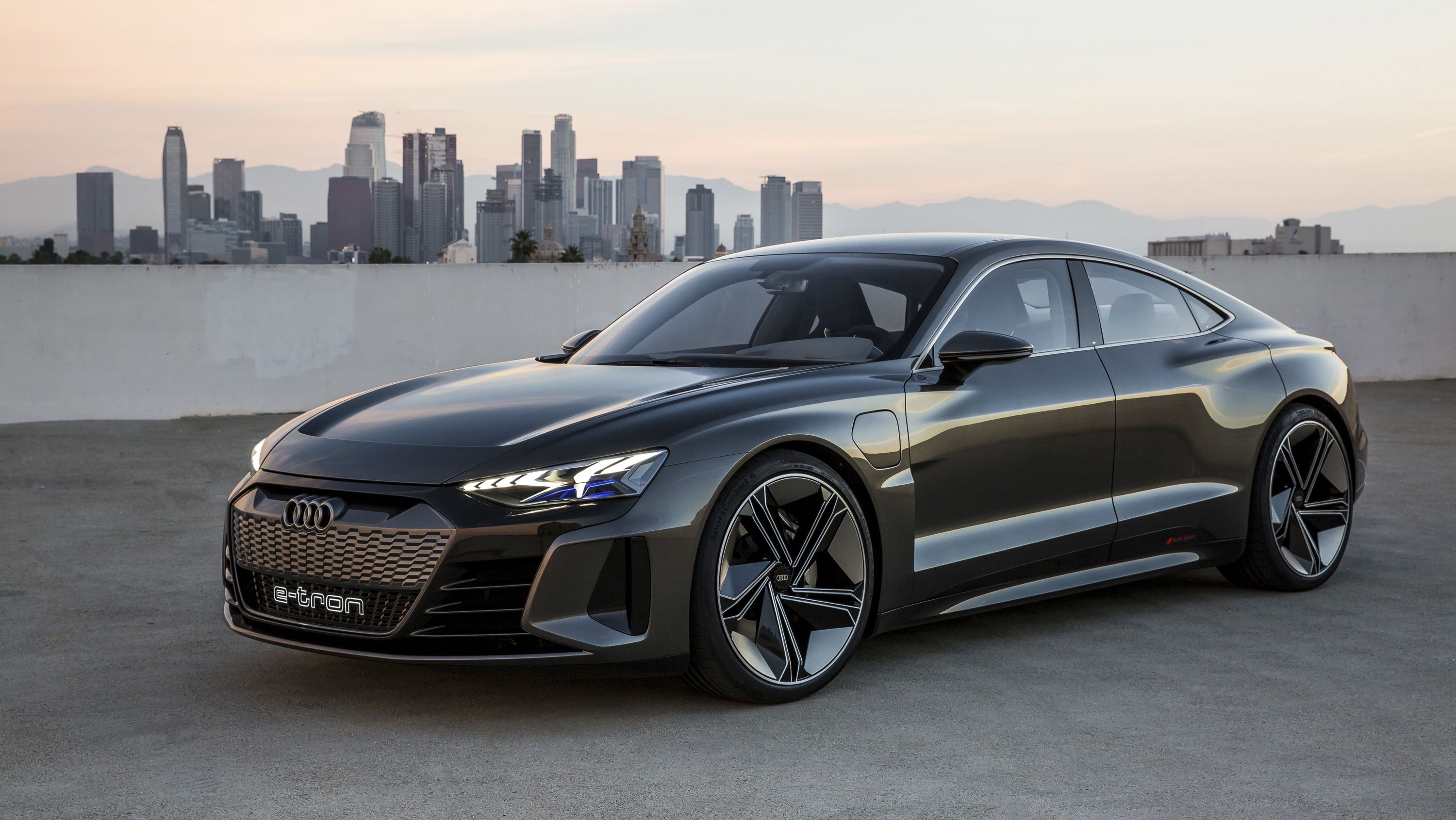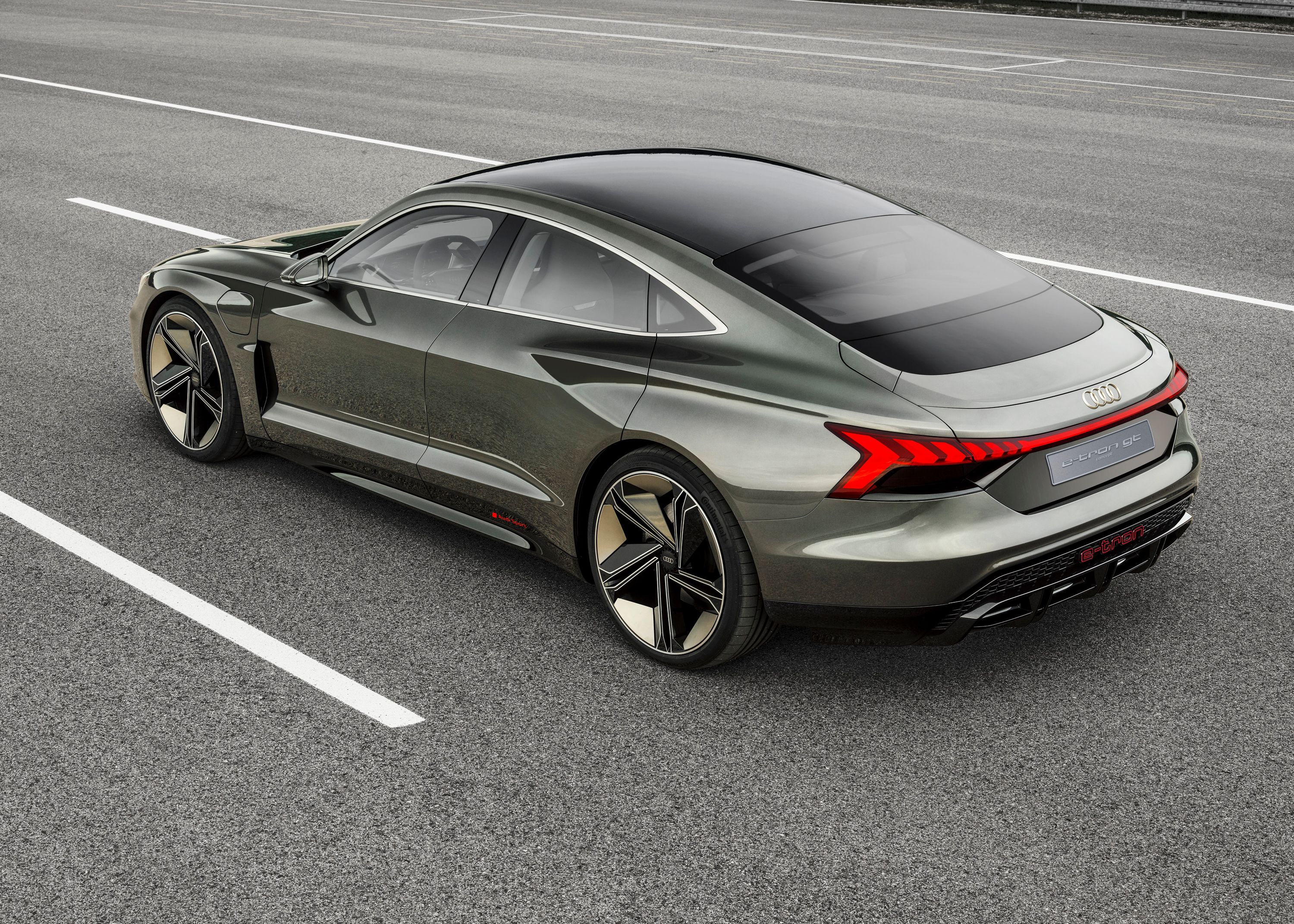For now, the Tesla Model S lords over at the all-electric performance sedan segment. That could change, though, once the Porsche Taycan and Fisker eMotion hit the scene. But another would-be contender made its presence known at the 2018 Los Angeles Auto Show. Don’t look now, but Audi wants a piece of that pie from Tesla, and its contender-of-choice is the all-electric e-Tron GT. Audi’s fresh offering actually shares its roots with the aforementioned Taycan, which isn’t surprising because the two are, technically, cousins in this endeavor. The e-Tron GT, though, stands out because Audi didn’t mince its intentions in the sedan’s build. The e-Tron GT was built for performance, and the numbers back it up.
2018 Audi E-Tron Concept
Audi outdid itself this time. The e-Tron GT stormed the LA Auto Show castle and raised its flag, signaling its intent to not only become a player in the all-electric performance sedan segment, but to let everyone know that it’s gunning for the throne currently occupied by the Tesla Model S. This is exactly what the fledgling market needs, and at least for now, Audi delivered the goods.
Ok, let’s talk performance, specifically on how the Audi e-Tron GT matches up with the Tesla Model S. In this particular exercise, we’ll use the Tesla Model S 75D because it’s the version of the Model S that lines up directly with the specs of the Audi concept.
In terms of power and performance, the e-Tron GT gets one back on the Model S 75D.
On that end, the e-Tron GT has a trick up its sleeve. It boasts a sophisticated cooling technology that, according to Audi, helps the electric performance sedan utilize the driver’s acceleration potential several times in succession. This means that the e-Tron GT need to go into overdrive after several quick accelerations to compensate for thermal considerations. It hands the full potential of the battery and the pair of synchronous motors to the driver’s plate, giving him the ability to maximize the full performance potential of the e-Tron GT. There are no concessions here, unlike on the Model S, which cuts back power after a period of hard accelerations to protect itself from compromising its own capabilities. With the e-Tron GT, you don't have to worry about any timeouts or whatever is the automotive equivalent of a bathroom break. It can let loose whenever you want it to.
What we do know is that the Audi e-Tron GT is here to compete against the Tesla Model S, not take a back seat to it. I probably don’t need to say it, but on behalf of everyone who’s interested in the future of the all-electric performance sedan segment, it’s about time we see some real competition for the Model S.
Further reading
Read our full speculative review on the 2020 Audi E-Tron GT.
Read our full review on the 2018 Tesla Model S.
Read our full review on the 2020 Porsche Taycan.
Read our full review on the 2020 Audi E-tron Quattro.
Read our full review on the 2015 Audi E-Tron Quattro Concept.



